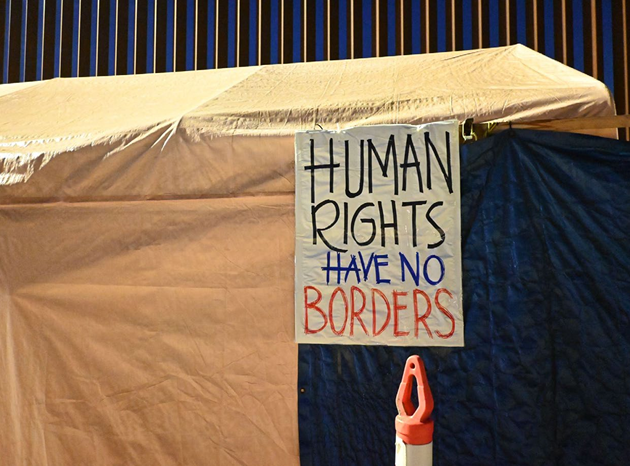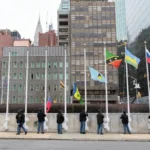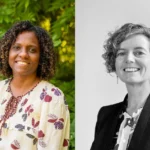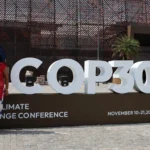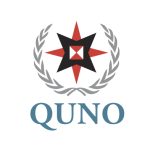Summary and context
The Intergovernmental Negotiating Committee (INC) was established by the United Nations Environmental Assembly (UNEA) Resolution 5/14 (2022) to develop a legally binding instrument to end plastic pollution, including in the marine environment. Its fifth session was split into two parts: INC-5.1 took place in Busan, South Korea (late 2024) and INC-5.2 in Geneva (5–15 August 2025). At INC-5.2 negotiators were expected to advance towards a consolidated text for eventual adoption at a diplomatic conference.
Throughout the second part of the INC’s fifth session, delegates met in contact groups and informal meetings to address key issues: the treaty’s objective, scope, lifecycle measures, finance, institutional arrangements, and decision-making. On 13 August, the Chair issued a revised text, which feedback from legal and policy experts across civil society — alongside QUNO’s own review — indicated still left significant gaps in ambition and bindingness.
Extended closed-door consultations and prolonged plenary delays followed. Delegations received limited notice when a new revised Chair’s text was circulated at around 02:00 on 15 August. Plenary reconvened shortly thereafter, and the meeting was adjourned without agreement on a consolidated negotiating text, without a decision on when or where the resumed session would take place yet again, and without clarity on the procedural pathway forward.
Substantive context — what the latest text would and would not do
What it would do:
- Reference human health and the full life cycle in the treaty’s objective.
- Provide for national action plans aimed at “highest possible ambition” (bindingness unresolved).
- Retain or modestly strengthen provisions on waste management and extended producer responsibility, though without common global standards.
- Propose a hybrid finance mechanism (GEF plus a possible dedicated fund), with key details bracketed.
- Include a voting fallback for most COP decisions, excluding finance and rules of procedure.
What it would not do:
- Establish a dedicated health article or operationalise health protections across the treaty.
- Include an article on the scope of the treaty or more than minimal agreed definitions.
- Set binding global targets or a ratchet mechanism to strengthen ambition over time.
- Place quantified limits on primary plastic polymer production.
- Provide binding global lists of problematic plastic products or chemicals of concern.
- Avoid over-reliance on qualified language (“as appropriate,” “should”) and future COP determinations, which limits enforceability in the near term.
QUNO’s economic perspective — aligning finance with purpose
Our Plastic Money: Phase 3 research with Eunomia estimates subsidies to primary plastic polymer production at around USD 80 billion annually in 2024, potentially rising to USD 150 billion by 2050 under a business-as-usual scenario. While subsidies are not the sole cause of over-production, they distort markets, lock in capital-intensive infrastructure, and delay the shift to safer, more sustainable alternatives. Removing them would likely reduce new polymer output with minimal average price effects on most fast-moving consumer goods. Without confronting these incentives, any treaty risks treating symptoms rather than root causes.
Process considerations
- Late circulation of key texts, extended closed informals (in English, without translation into other languages), and sudden plenary rescheduling constrained the ability of smaller delegations and observers to engage meaningfully.
- Space for observer interventions was repeatedly curtailed, limiting contributions from Indigenous Peoples, waste pickers, frontline and fenceline communities, youth, health professionals, and scientists.
- Civil society organisations noted the record presence of fossil fuel and chemical industry lobbyists, underscoring the need for robust conflict-of-interest safeguards.
The path forward
For the resumed part of the fifth session to deliver a credible outcome, it will require:
- Decision-making modalities that allow progress when consensus is not possible.
- Binding lifecycle measures covering products, chemicals, production, waste, trade, and health — supported by global targets and ratchet mechanisms.
- Means of implementation that are predictable, adequate, and aligned with the treaty’s purpose — including the identification, reporting, and reform of subsidies that undermine its objectives.
Our stance
At this juncture, given the current architecture of the text, there is a risk that a weak treaty could embed insufficient action. QUNO expresses deep gratitude to the many delegations working towards ambition, and to Indigenous Peoples, waste pickers, affected communities, Small Island Developing States, youth, scientists, health advocates, and civil society organisations who worked tirelessly — often through the night — to uphold the UNEA 5/14 mandate and the spirit of Nairobi.
We remain committed to facilitating dialogue, advancing work on financial transparency and subsidy reform, and supporting a pathway to an effective, inclusive, and science-based treaty that safeguards human health, human rights, and environmental integrity for present and future generations.



